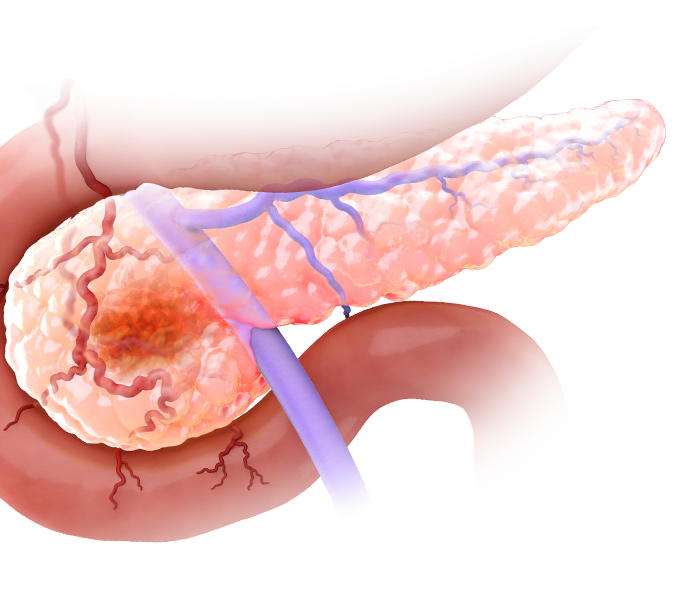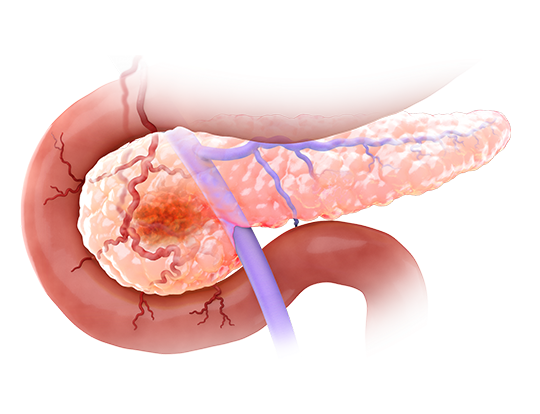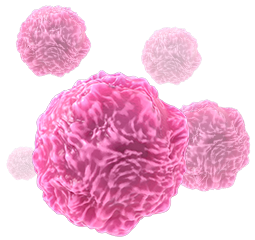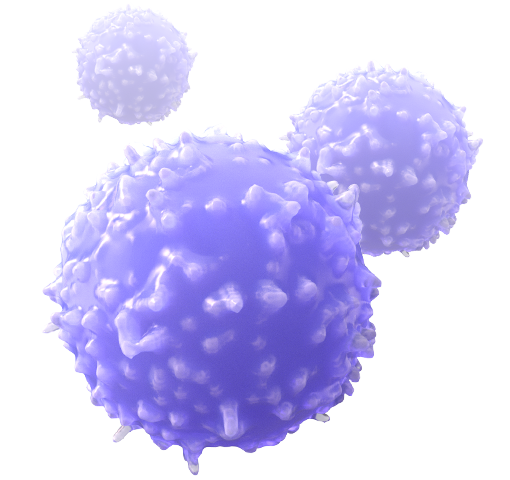
The PDAC TME induces angiogenesis through vascular endothelial growth factor (VEGF), resulting in disorganized tumor vasculature, hypoxia and high ITP. These factors profoundly impact immuno-oncology drug delivery and efficacy.3
Systemic drug delivery distributes the majority of a drug outside of the pancreas and fails to create an adequate pressure gradient to overcome intratumoral pressure.1
Our proprietary technology has been shown to overcome ITP and reopen blood vessels.

The PDAC TME induces angiogenesis through vascular endothelial growth factor (VEGF), resulting in disorganized tumor vasculature, hypoxia and high intratumoral pressure (ITP), profoundly impacting immuno-oncology drug delivery and efficacy.3
Systemic drug delivery distributes the majority of a drug outside of the pancreas and fails to create an adequate pressure gradient to overcome intratumoral pressure.1
Our proprietary technology has been shown to overcome ITP and reopen blood vessels.
The PDAC TME is primarily made up of pancreatic stellate cells (PSC), extracellular matrix and immunosuppressive cellular populations.1 At baseline, the PDAC TME contains few active T cells, the absence of which is further exacerbated by tumor-associated macrophages (TAM) and myeloid-derived suppressor cells (MDSCs).4
Upregulation of TAMs drives the secretion of immunosuppressive cytokines, recruitment of regulatory T cells (Treg), interference of effector and cytotoxic T cells, and additional upregulation of PSCs.5–7
The presence of myeloid-derived suppressor cells (MDSC) further contributes to the immunosuppressive PDAC TME.1,2


In addition to Treg, suppressive myeloid cells are recruited to the PDAC TME.1,2 MDSCs are critical drivers of poor responses in the pancreas due to further suppression of effector T-cell function using reactive oxygen species, production of adenosine and inducing Treg development through secretion of IFNγ and IL10.8
At TriSalus, we believe that a therapeutic approach that simultaneously reduces immunosuppressive populations and improves therapeutic delivery to tumor tissue holds great promise for patients with few good options.
We encourage you to read and evaluate terms of use, privacy, security and other similar policies of the destination site as they may differ from TriSalus’ standards.
TriSalus assumes no responsibility nor does it control, endorse or guarantee any aspect of your use of any third party sites. Additionally, the presence of this link does not imply the third party site’s endorsement of TriSalus or this website.
Thank you for visiting our site.